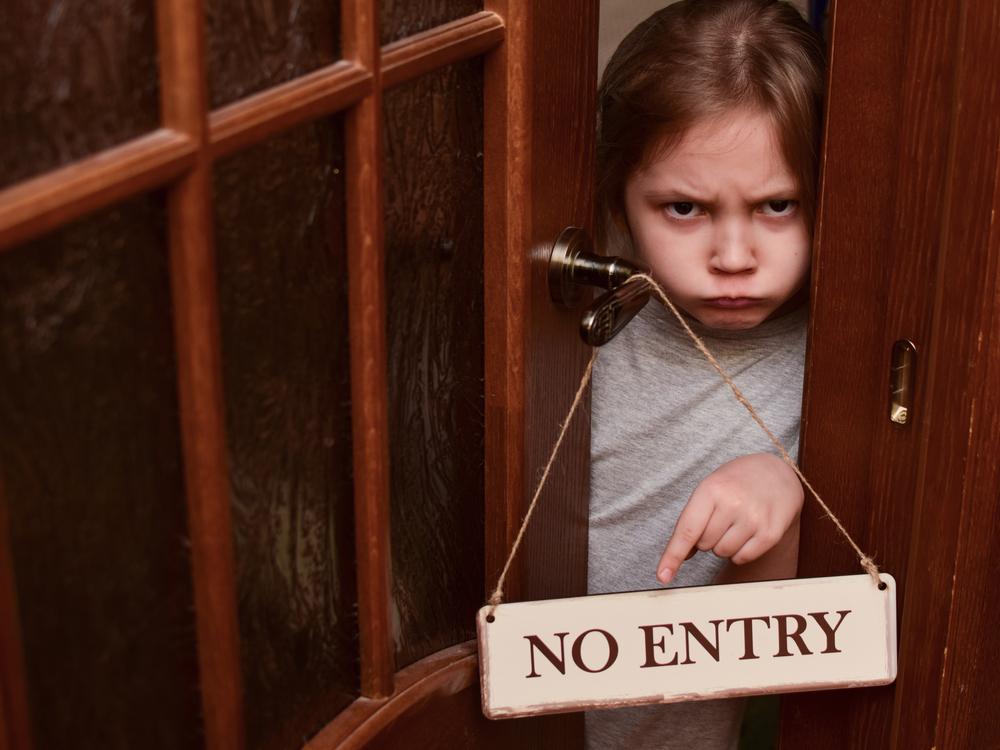Most parents tell those little white lies meant to shield their kids from harsh truths, get them to behave, or simply because they’re tired and it’s the easier answer. However, while well-intentioned, these fibs can have unintended consequences. Here are some common lies parents tell and why they might do more harm than good.
1. “Eating carrots will help you see in the dark.”

Okay, technically not a lie – according to Healthline, carrots are good for eye health. But this oversimplification sets unrealistic expectations and can lead kids to distrust real information later. Instead, explain how healthy foods support overall well-being, including vision. These old-fashioned (and yes, slightly silly) lines seem harmless enough, but there are better ways to get your kids into eating well.
2. “Santa is watching you!”

The idea of constant surveillance to enforce good behavior is… well, a little creepy. It encourages a sense of extrinsic motivation (which means behaving for rewards/avoiding punishment according to Verywell Mind) rather than teaching kids to internalize values like kindness and honesty. They shouldn’t be “good” because they think it will lead to rewards.
3. “If you don’t go to sleep, the Boogeyman will get you!”

Similar to the above line about Santa, scaring kids into compliance isn’t a great long-term strategy. It can cause or increase anxiety and fear of the dark, and make it harder for them to fall asleep independently. Emphasize the positives of sleep (feeling rested, having energy to play) instead of using threats.
4. “You’re not really in pain.”

Dismissing a child’s pain, even if you suspect a bit of exaggeration, undermines their trust in recognizing and communicating what’s happening in their own bodies. Validate their experience (“That sounds like it hurts a lot!”) while investigating what might be causing it, whether it’s a real injury or something more emotional.
5. “If you keep making that face, it’ll freeze that way.”

This one’s meant to be silly, but kids might not get the joke, and it could lead to unnecessary worry if they’re naturally more highly strung. It’s better to redirect their attention playfully than to instill a strange fear of their own facial expressions.
6. “The dog/fish/hamster ran away.”

Trying to soften the blow of a pet’s death can backfire. Kids are smart; they might figure out the truth and feel betrayed. Age-appropriate honesty (“Fluffy was very old and sick, and she died”) followed by reassurance and space for grief is a kinder approach. There are ways to soften the blow while not outright lying to them.
7. “I don’t have any money.”

Sometimes this is true, but used habitually, it can make kids feel insecure or like their wants are a burden. It’s okay to say something along the lines of “We’re not buying that today” and explain choices around budgeting or saving up rather than always resorting to this shut-down response.
8. “You can be anything you want to be!”

It’s meant to be inspiring, but it lacks nuance. Every child has potential, and there are real-world limitations and factors like talent and circumstance. It’s better to focus on helping them discover their strengths and passions while supporting their work ethic and resilience.
9. “I’m not mad, just disappointed.”

For many kids, this feels even worse than outright anger! It conveys a sense of disapproval of their core self, not just a specific action. Be clear about what behavior you want to see changed, while still expressing love and belief in them.
10. “I was the best at [specific task] when I was your age.”

We want our kids to feel inspired, but setting impossible standards creates pressure. Plus, they might see right through the exaggeration! Share your passions and accomplishments, but also the struggles and how you overcame them.
11. “This won’t hurt a bit!” (Before Shots, Etc.)

Sure, you’re saying this to assuage their fears, but it breaks trust when the inevitable sting arrives. Be honest and say something like, “This might hurt for a second, but it’s important to keep you healthy.” Offer them comfort and distraction techniques to help them cope.
12. “I didn’t like those vegetables either as a kid.”

Solidarity is nice, but this fib undermines your credibility if they see you happily munching broccoli now. Instead, focus on learning to like new foods together. “Let’s each try one bite and see if we can find a way to prepare it that we enjoy,” or something along those lines, can be more encouraging.
13. “Screen time rots your brain.”

Fear-mongering rarely works. Kids know this isn’t literally true, and this will make them tune out your warnings altogether. Explain the need for balance by saying something like, “Too much screen time can make it hard to focus and get enough sleep. Let’s make time for other fun activities too.”
14. “I don’t want you hanging out with them.”

Sometimes this is necessary to avoid drama, but if it’s used often, kids might internalize it, feeling like there’s something wrong with them. When feasible, try a more neutral explanation like, “We already have plans that day” or, “Let’s schedule a play date another time!”
15. “We’ll do it next time, I promise.”

Broken promises, even small ones, can really destroy the trust you have with your kid(s). It’s better to be upfront with something like, “I’m not sure when we can do that, but let’s write it down on our idea list!” or maybe, “I’d love to do that, but today’s not a good day. Can we choose a specific date together?”
16. “I’ll be there/back in five minutes.”

Kids have an uncanny ability to track time inconsistencies. Rushing out the door while promising a speedy return sets them up for disappointment. Be realistic. “It’ll take me a little while to get there, but I’m excited to see you!” will go over way better. You could also involve them in a fun “getting ready” game so the wait feels shorter.
17. “I love all of your art equally.”

It’s tempting to avoid hurting feelings, but kids can sense when praise is insincere. Instead of blanket compliments, focus on specifics like “I love the bright colors you chose here!” or, “You worked so hard on this drawing, I can tell you’re really proud of it.”








